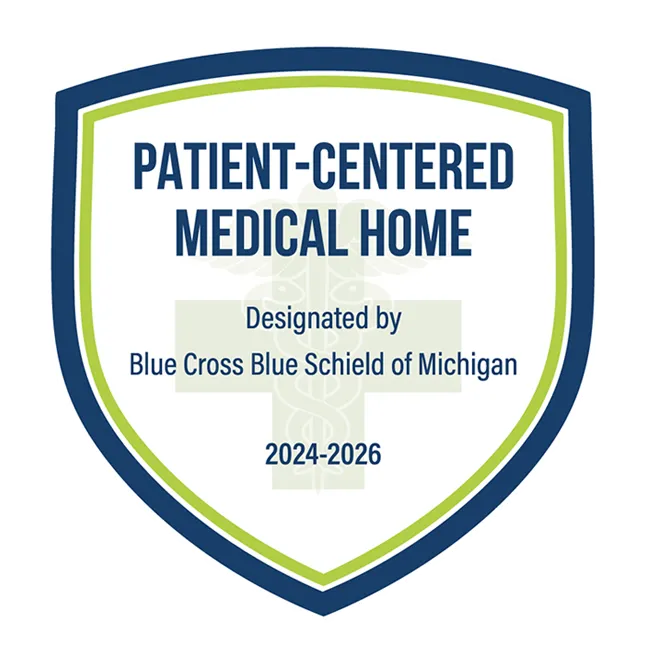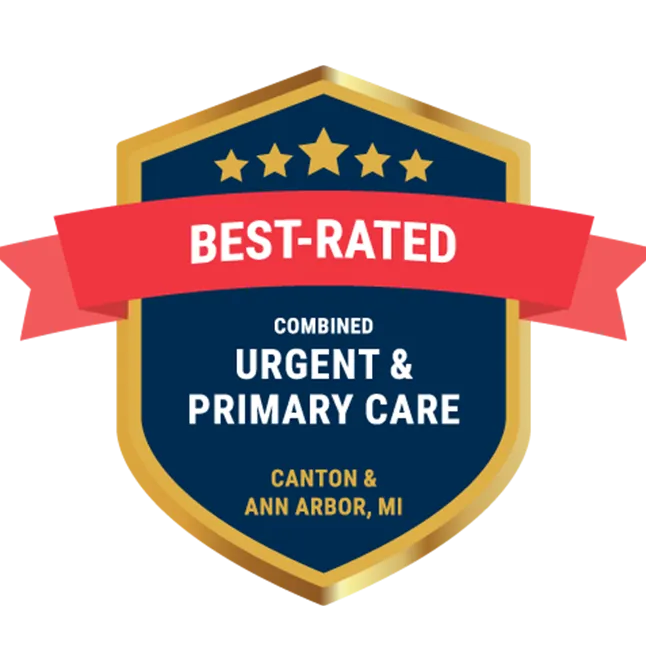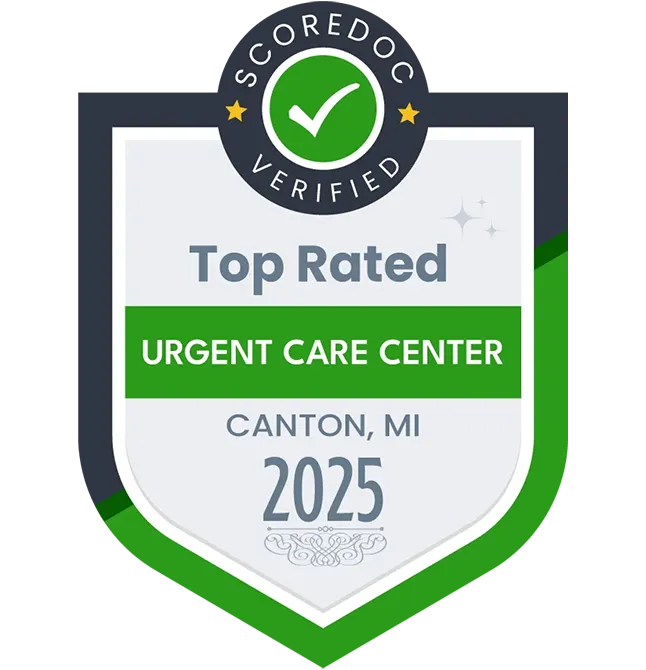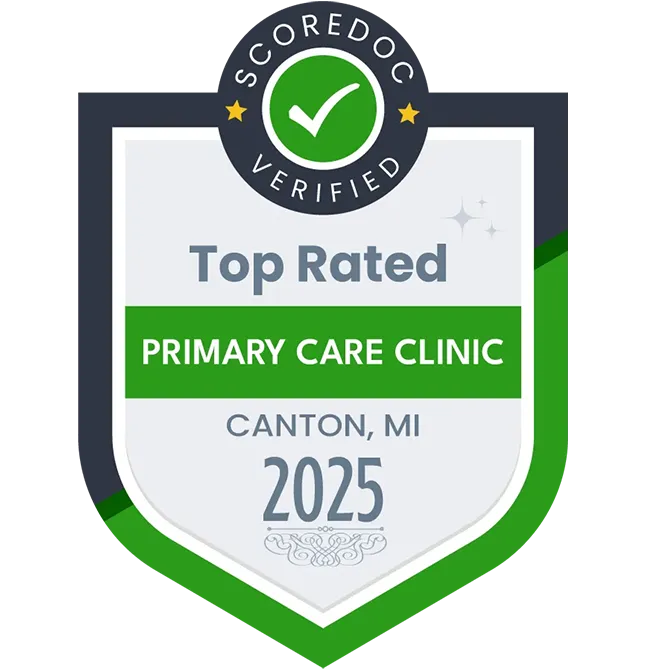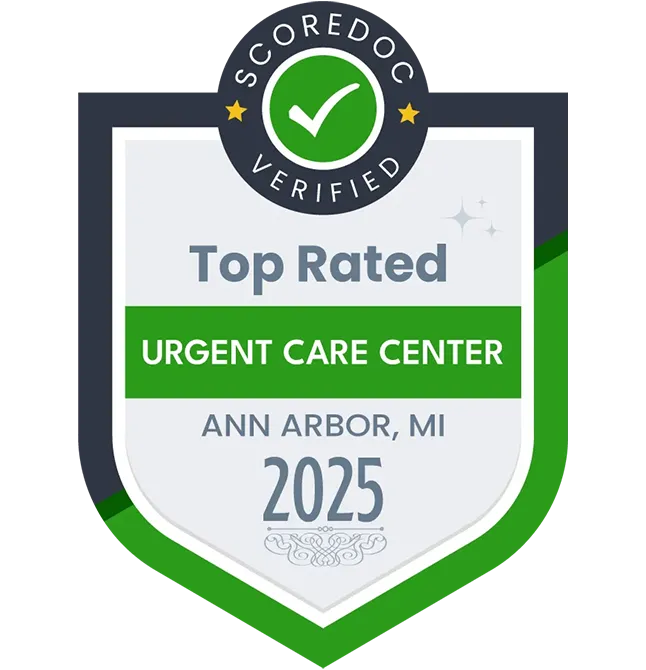

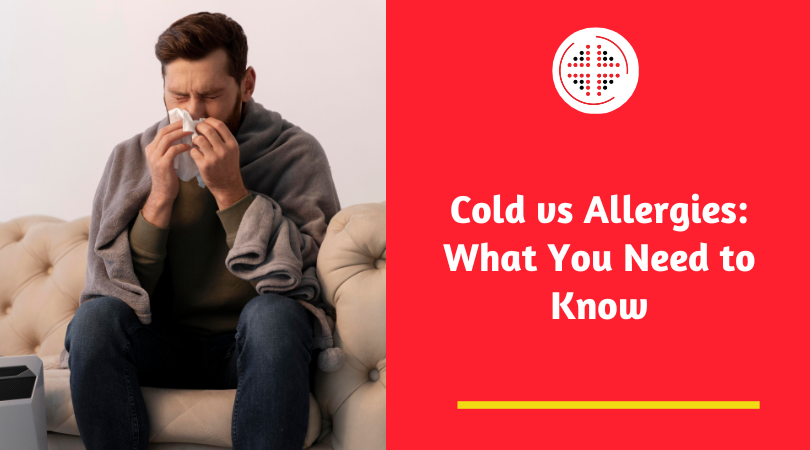
Do you often find yourself reaching for tissues and sneezing uncontrollably, wondering whether it's a regular cold or something caused by allergies? The similarity in symptoms usually leaves us confused, trying to decipher between the two. When seasons shift or the weather changes, it's important to figure out the difference between a cold and allergies. Knowing this helps us find the right way to manage and get relief that works.
According to the Centers for Disease Control and Prevention (CDC), allergies affect more than 60 million people in the United States alone. Additionally, it highlights that adults usually suffer from about 2-3 colds per year, with children often experiencing even more.
If you're wondering how to tell if it's allergies or a cold, this article is for you. Read on to find out more about allergies vs cold symptoms.
Colds are caused by viruses. Once infected with a cold virus, your body tries to fight it off, bringing on classic cold symptoms like coughing or a blocked nose. Cold viruses are infectious, which means a person with a cold can spread the infection if they cough or sneeze in public or even shake hands. Once infected, at most, a person takes one or two weeks to recover and stops exhibiting symptoms afterward.
Allergies present a unique challenge on their own. They're caused if a person has an overactive immune system. This means that the person's immune system misidentifies harmless substances such as pollen and dust as germs and attacks them. When this happens, the body releases chemicals similar to histamine when it battles colds, leading to symptoms such as sneezing, coughing, and swollen nasal passageways. One major difference between allergies and a cold is that allergies are not infectious but, in some cases, may be genetically inherited.
Learn what's the difference between a cold and allergies with the help of the chart below:
Category of Difference | Allergy | Cold |
Cause | Hyper-active immune system | Virus |
Duration | Days to months | 3-14 days |
Time of prevalence | Any time of the year unless it is a seasonal allergy | Any time, but most often in winter |
Incubation period | No incubation; symptoms manifest immediately on contact with allergens | A few days after the virus enters the body |
Prevention | Identification of allergens and avoidance as far as possible | Maintenance of hygiene, washing hands often, and avoidance of contact with cold-infected persons |
Treatment | Avoidance of allergens; face masks; decongestants; nasal steroids; anti-histamines | Plenty of hydration; rest; aspirin (for adults); decongestants; ibuprofen for body aches |
Possible severities | Asthma; ear and sinus infections | Asthma; sinus and ear infections |
The symptoms of cold vs allergies are quite close. So, how do you know the difference between a cold and allergies?
Here is a list of symptoms to help you understand the different signs of allergy and cold:
Symptoms | Allergy | Cold |
Blocked or runny nose | Yes | Yes |
Headache | Not common | Not common |
Fatigue | Occasionally | Occasionally |
Body aches | Never | Occasionally |
Fever | Never | Uncommon |
Sore throat | Occasionally | Yes |
Cough | Occasionally | Yes |
Sneezing | Yes | Yes |
Chest discomfort | Not common | Mild to moderate |
Duration | Usually lasts 7-10 days | Varies; symptoms can persist for weeks |
Triggers | No specific triggers | Seasonal changes, specific allergens |
In cold vs allergy quandaries, expert medical help isn’t often required to diagnose colds. If you consult a doctor, a study of preliminary symptoms should be enough to confirm a diagnosis.
In the case of allergies, however, your primary physician may want you to run some tests to confirm their nature and extent. They may even refer you to an ENT (ear, nose, and throat) specialist or an allergist to confirm diagnosis.
Unless they become aggressive, cold and allergy treatment is simple and can easily be achieved at home.
For cold and allergy symptoms, seeking help might be necessary when:
At MI Express Urgent Care, we understand the confusion you may face in diagnosing cold vs allergies. That is why we offer dedicated care and custom-made treatment plans to assist you in diagnosing and managing your symptoms and improving your quality of life. Contact us today to relieve your worries.
